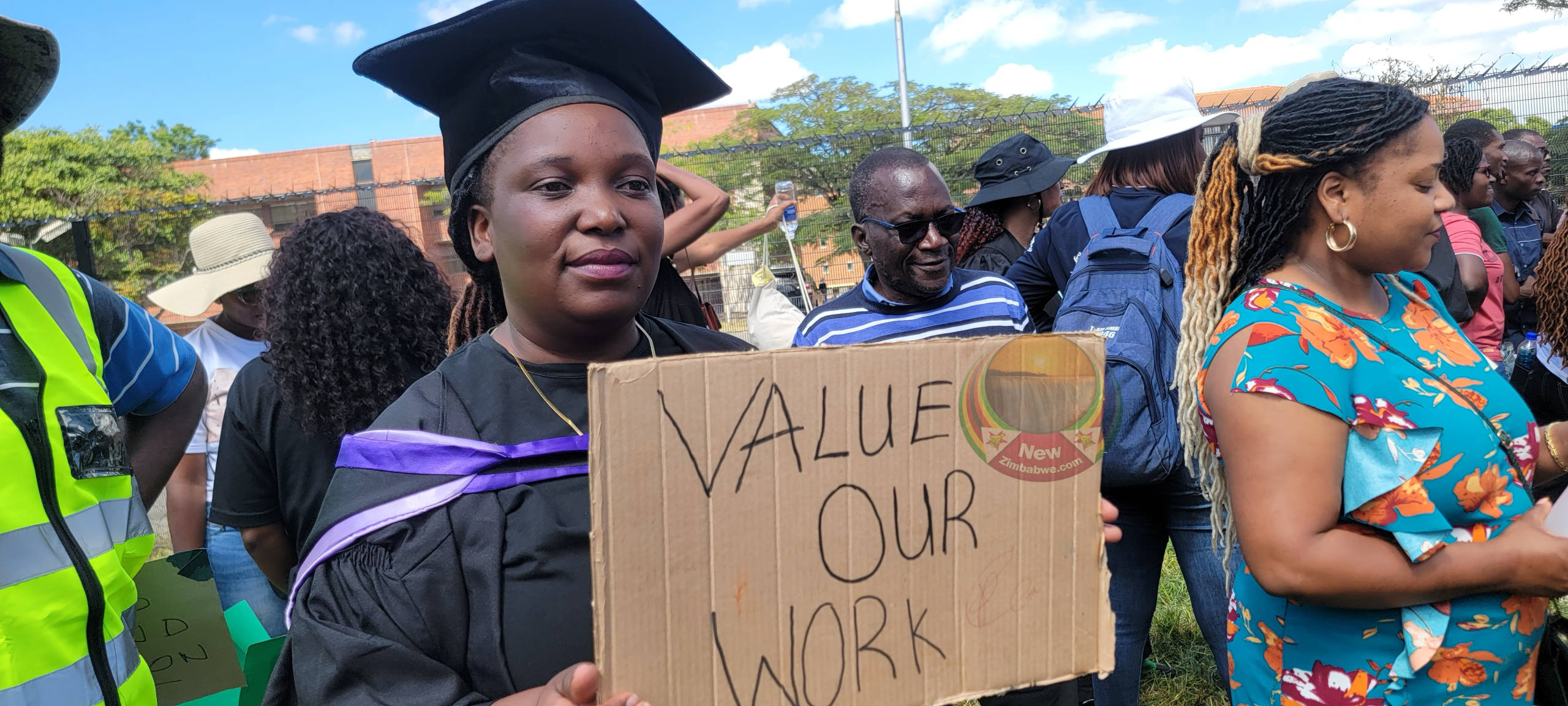THE High Court in Harare has ruled in favour of Citizens Coalition for Change (CCC) interim secretary-general Sengezo Tshabangu after finding that all party positions from the 2019 Gweru congress are being held unlawfully.
Tshabangu had dragged party officials Sesel Zvidzayi, Concillia Chinanzvava, Gilbert Kagodora, Shepherd Mushonga and CCC to High Court where he file an urgent application.
In her ruling, Judge President Mary Zimba-Dube indicated that the terms of office for Zvidzayi, Chinanzvavana, Kagodora, Mushonga and other main organs elected on May 26, 2019, were in breach of the party constitution.
She also declared the disciplinary process constituting the disciplinary committee held on February 12, 2025, to deliberate and decide on allegations of misconduct levelled by the CCC against Tshabangu “null and void and set aside”.
The Judge President ordered CCC to pay the costs of the application.
Tshabangu had approached the High Court seeking relief on an urgent basis for a declaration that the CCC office bearers and main organs elected in Gweru's terms of office expired on May 27, 2024.
Keep Reading
- Chamisa party defiant after ban
- Village Rhapsody: How Zimbabwe can improve governance
- News in depth: Partisan police force persecutes opposition, shields Zanu PF rogue elements
- Chamisa chilling death threat bishop defiant
He also applied to the court praying for the decision to expel him made by a disciplinary committee constituting office bearers whose tenure of office had expired to be declared null and void and set aside.
Zvidzayi was cited in his official capacity as the chairperson of the CCC national disciplinary committee that expelled Tshabangu, while Chinanzvavana, Kagodora and Mushonga were part of the committee.
Tshabangu was expelled from the party after the Parliamentary Committee on Standing Rules and Orders resolved to appoint members to the leadership of portfolio committees.
The court head that on December 10 last year, the CCC together with Welshman Ncube, Lynette Karenyi-Kore and Edwin Mushoriwa, filed an urgent chamber application seeking an interdict against the appointments.
Tshabangu averred that the office bearers of the party’s main organs' terms of office had expired, submitting that no elections for new office bearers had been held.
He also argued that the appointment of members of the national disciplinary committee was ultra vires the code of conduct and regulations of the party.
Tshabangu also posited that as the interim secretary-general of the party, he had no knowledge of the appointment of the disciplinary committee and never generated the notice or sanctioned it.
He challenged the authority of Ncube to appoint the disciplinary committee, arguing that he was rotating on his own as acting president contrary to the provisions of the constitution.
Tshabangu averred that he learnt through the social media on January 9 this year that he had been suspended from the party, his position as interim secretary-general, and as the leader of the opposition in Parliament.
He also challenged the conduct of the disciplinary committee on several grounds. Chief among the objections being the jurisdiction of the disciplinary committee which tried him, the venue of the disciplinary hearing which he said was held at a private property belonging to Willias Madzimure.
He also argued that Zvidzayi should have recused himself on account of bias, having been negatively affected by his alleged actions and being a litigant against the applicant in the High Court and the Supreme Court on account of the same allegations.
The CCC defended the application with the first to fourth respondents choosing to abide by the decision of the court on the reasoning that they were members of the disciplinary committee that rendered the decision and had no duty to defend the application.
It challenged the propriety of the application, arguing that Tshabangu was challenging the outcome of the party’s disciplinary proceedings against him and had brought a review application disguised as one for a declaratur.
The CCC refuted that the terms of office of office bearers elected at the Gweru congress had expired, arguing that they should hold office until their replacements are elected while maintaining that the disciplinary committee was properly constituted.
Zimba-Dube ruled that Tshabangu acted when the need to act arose and within a reasonable time after the conduct impugned occurred and did not delay in seeking recourse.
“The applicant has a reasonable apprehension that the respondents may recall him once he is not affiliated to the party and generally that the expulsion threatens his political tenure.
“He demonstrated the risk of harm or prejudice to him if the matter is not dealt with on an urgent basis. The harm or prejudice that he will likely suffer if this matter is not dealt with on an urgent basis cannot be compensated by an award of damages. The interests of justice demand that this matter be heard on an urgent basis, warranting the matter to jump the queue,” she said.
“The resolution does not speak to the authority of the deponent to the opposing affidavit to depose to it. Its importance to this matter was not addressed by the respondent.
“Effectively, Welshman Ncube has failed to provide proof of written authority from the respondent to depose to the opposing affidavit and to show that he was duly authorised to depose to the opposing affidavit on behalf of the respondent.
“Despite being made aware of the shortcomings of the resolution, no response was forthcoming and no corrective action was taken by the respondent.”





